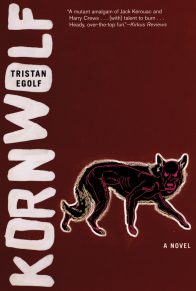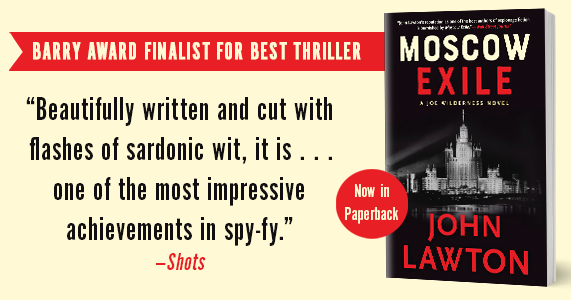Baker is situated in Pullman Valley, a twelve-mile pothole which was gutted into the modern-day corn belt by the glaciers of a preceding ice age. The western lip of the valley rises to 425 m above sea level, with the crowning limestone peaks on the northern end towering an additional 20 m over all the rest. Between this 600 yard escarpment and the treeless barrens to the northeast lies a maze of knobs and hollows, all thick with saw-briars, sassafras, dogwood and fool’s gold. Most of the soil is fairly worn, though it was once among the most fertile in the state. The summers are hot and long, the winters brief, yet occasionally brutal. Positioned at the northeast corner of the town line, almost perfectly centered in the valley — just south of where the Patokah river veers off from its course along the eastern wall and cuts in toward the community — lies Gwendolyn Hill, home to the Ebony Steed coal company and probably the greatest key in existence to Baker’s muddled past.
Sometime during the postwar industrial mobilization that swept across the corn belt and brought towns like Baker alive with manufacturing plants, a Bostonian entrepreneur by the name of Glendan Castor moved into an old Antebellum home on the north end of town. Castor had purchased three square miles of land in Pullman Valley with the intention of founding a mining operation. It was a fundamentally sound investment, as the land was cheap and the availability of an expendable labor force seemingly inexhaustible — New England money goes a long way in the corn belt. However, what he did not foresee was the endless chain of complications that would come about as the result of his chosen site for operations. Had he known what lay beneath the surface of Gwendolyn Hill, he very well may have packed up and headed back to Boston straightaway.
As it was, the establishment of the company was fraught with disastrous setbacks right from the beginning. Unbeknownst to all concerned at the time, Gwendolyn Hill had been the original site of an early European settlement/trading post, of which most existing records had vanished. In addition, Pullman Valley had been previously inhabited by a tribe of Shawnee Indians. In effect, this meant that encased in the hillside lay a scrap heap of Kentucky rifles, dead Indians, corroded whisky stills, sod houses, busted cooking utensils and grindstones, all of which were deemed `archaeologically significant’ in contemporary legal terms. As standard governmental policy dictated, the discovery of any such find mandated that the respective bureau in the capital be notified at once, and that all operations be temporarily seized. A crew of archaeologists would then be sent in to pick apart the 1.5 mile reservoir with a fine-toothed comb. Which was all good and well for everyone concerned, except the coal-truck operators on unemployment. Castor’s original crew had unknowingly inherited a buried pig sty left behind by its forebears.
If a white burial ground was unearthed, the church was called in to exhume the graves. That took two weeks. If an Indian burial ground was unearthed, the bureau of archaeology was deployed. That took up to two months. During that time the company’s enormous million dollar coal trucks, each being the size of the average American home, were left unattended, lined up in a row like sick dinosaurs at a watering hole. Their operators filled the taverns, commiserating openly and drinking themselves blind. Before long, they’d become an active public menace. Their behavior was frowned on all through the community. They themselves were miserable and bored. Knockdown brawls resulted. The whole crew was thrown in the county jail overnight on more than one occasion. And no sooner would operations finally get underway again than someone would churn up a section of an old stone wall during a munitions blast, landing everyone back in the bread line for another few weeks. Back to the taverns, back to the public charge. It became a serious problem. Castor’s operations started to falter. The company’s future was in jeopardy. Some of the operators walked off the job, and, contrary to the way it had been mapped out, they were no longer so easily replaceable.
But the precarious nature of the situation was never more apparent than on the afternoon a routine blast turned up a fully intact, perfectly preserved, calcified skeleton of a grown wooly mammoth. The moment `exhibit #1A,’ as it would later be called, appeared on the southern end of the main quarry, the coal-truck operators leapt out of their rigs and ran screaming along the ledge with their heads in their hands. They swore that was it — it was all over; they would be shut down for the entire season this time. They stood in a flap-jawed row along the drop off, staring down at the half-submerged ribcage protruding from the gravel. Visions of terminal unemployment and public disgrace swept over them. It probably would’ve been curtains for the entire company right then and there had one man not quietly stepped forward and told them all to keep their hats on. At the time, the head of the human resources department at Ebony Steed was a barrel-chested, charismatic graduate of the university of St. Louis by the name of Ford Kaltenbrunner. Kaltenbrunner, in his trademark levelheaded manner, climbed down into the quarry, threw a black tarp over the latest find, and instructed everyone to take a break. All eyes followed him as he made his way back up the embankment to Castor’s office-house.
The outcome of the resulting conference was this: the company’s administrators unanimously concluded, under advisement from Kaltenbrunner, that it was high time Ebony Steed took a few basic matters into its own hands. In the interest of self-preservation and at the risk of crippling legal repercussions, it was thereby decreed that, from that day forward, all significant archaeological finds would be handled in a clandestine manner. Kaltenbrunner himself was appointed overseer of the coverup. Beginning with the latest discovery, all artifacts were to be recorded, dusted off, and turned over to him personally. He would then package the material with any pertinent information intact, and store it in a secret, well-concealed location where no one, including Castor, could get to it. The less anyone knew of its whereabouts, the more secure the coverup, it was reasoned.
The new policy was effective immediately. Consequently, the company wasn’t shut down once for the next eleven years.
Kaltenbrunner, for his efforts, was promoted and compensated accordingly. He rose through the ranks of Ebony Steed and was soon second only to Castor himself, though in the eyes of the machinery operators he was clearly the most capable man in the company, bar none. He was widely respected and well-liked, seen as a fair man, a brilliant conversationalist, and one of the finest drinking partners this side of the cross. His sway over those around him was widely coveted. He was consulted for professional and personal advice on a regular basis. He was never known to turn down anyone in genuine need of his help.
At the age of thirty-four he was married to an area seamstress of Welsh descent. He and his wife put a down-payment on an estate situated one mile due north of Gwendolyn Hill, just across the river. Ford set up a study in the attic of the farmhouse and soon lined the shelves with long rows of research material pertaining to his archaeological inquiries. His library grew, as did his personal interest in the subject matter. The highly classified evidence from the mine was stored in a hidden location, the whereabouts of which not even Madame Kaltenbrunner was aware. Everything else remained in the attic. A growing collection of textbooks lined the lower shelves of the wall-mounted book rack positioned over the main desk. Information pertaining not only to the heritage and ancestry of the original inhabitants of Gwendolyn Hill, but also further analysis on the settlement and foundation of all of Baker: a chronological study of European migrations to the Midwest, the development of industry in the corn belt, the genesis of waterway navigation on the Patokah, the establishment of the railroads, pre and postwar farm production, the staggering effects of prohibition on a community of drunkards, barnstormings, cornhuskings, quilting bees, revivalism, wood-sawing contests, and even family charts on a good many of the town’s oldest residents. Exactly what he was working toward will remain a matter of conjecture, but the fact of the matter stands: Ford Kaltenbrunner probably had a tighter lock on the local populace than anyone in history.
At the age of thirty-eight, when he and his wife conceived their first child, Ford was at the height of his powers. Glendan Castor had become a washed out, embittered old ghost at Ebony Steed, little more than a peripheral reminder that, technically, there was still someone higher up on the ladder than Kaltenbrunner himself. With that in mind, it’s no wonder that Ford’s untimely demise, which was officially attributed to an explosion caused by a buildup of methane gas in one of the underground caverns, immediately prompted allegations of foul play all through the community.
At 2:30 p.m. on Thursday, September 20, 19–, every operator in reservoir number six heard and felt a sudden explosion where there should not have been one. They all left their rigs at once and began scrambling down the embankment to where an underground entrance lay sealed off by a large deposit of fallen limestone. They spent the rest of the day clearing the mess as quickly as they were able, but by the time they reached the body, it was too late. Ford Kaltenbrunner had been dead for hours.
Madame Kaltenbrunner was said to have never gotten over it. She was six months into term at the funeral and stood in her black combination maternity/mourning garb with a thousand-yard stare roped off behind her drawn veil. She was in shock, they said. She barely looked up all through the service. Afterwards, she left the cemetery without a word to anyone. She spent the evening alone. She didn’t appear for the memorial banquet at the American Legion. No one ventured out to the farm to offer his condolences. The coal-truck operators ended up in the gazebo at the town square after midnight, downing quarts of Kentucky bourbon and crying like children. Madame Kaltenbrunner was left to herself.
Thereafter she became an acknowledged recluse. She was only sighted from time to time, moping into the grocery in her beige overcoat. Most locals swore she’d lost her mind.
She never remarried.
Three months later, on December 21st of the same year, John Augustus Kaltenbrunner was born on the fifth floor of the Baker General. He was one week premature, weighed 7 lbs. 7 oz., with sandy brown hair, and type O+ blood. He was released after two days under a vitamin lamp. He and his mother were sent on their way, back to the empty farmhouse on the north end of the valley.
John was a sickly infant, prone to chronic respiratory infections and long illnesses. He was slight of build and somewhat awkward. He always seemed to be stumbling over himself, putting his nose where it didn’t belong, prying into things. Madame Kaltenbrunner was as attentive mother as could be. She listened to old phonographs in the parlor while John crawled around on the kitchen floor, fidgeting with the padlocked solvent covers and cornering mice in the cracks in the wall. He once ate a wild mushroom in the yard and had to have his stomach pumped at the Baker General. Another time he fell from the porch and cracked his skull on a shovel handle. He bled profusely over the upholstery of his mother’s wagon on the way back to the hospital. He would later recall the mask coming over his field of vision like a plummeting scavenger as the doctors prepared to sew up his head. He instinctively detested the infirmary from then on.
Outside of those two trips to the emergency room he had very little contact with the world beyond the farm for the first several years of his life. The only visitors Madame Kaltenbrunner ever entertained, or even allowed into the house, were a few of the coal-truck operators from the mine who evidently felt they were paying some kind of tribute to their deceased colleague by visiting his widow and bastard. They were enormous men with wooly faces, Texas-hog belt buckles and stale breath reeking of tobacco and sardines. They would remove their hats at the door and stand over John with an almost apologetic air of reverence and discomfort about them. They would inquire after Madame Kaltenbrunner’s financial situation, assuring her that if there was ever any problem with her life insurance benefits they would personally raise Cain themselves. After more small talk in the parlor, most of them would then take John for a ride through the backroads in their pickups. During these outings he was spoonshoveled numerous laudatory anecdotes concerning his father: his father the dragonslayer, his father the genius, his father the benefactor, his father the almighty, his father this, his father that — and what was more, he was assured, he himself would one day grow up to be a hard-driving, fueled, giant-killing sonofabitch as well. He’d see …
After their visits, after they’d rolled away and left him standing by the mailbox with his hands in his pockets, John was usually left at more of a loss than ever before as to who his father had actually been. He generally felt he’d spent the afternoon hearing out long-winded, harebrained, entirely pointless confessions which had nothing to do with him. He never said much in response to anyone’s claims, and even after many visits over a period of several years, he still had a hard time distinguishing one operator from the next. Try as he did, he couldn’t even remember their names. After some time the operators began to pick up on his confusion and wonder what was wrong with him. He was a strange one, they noticed — not much to look at. He was small for his age. He was never seen with any playmates. He seemed to be hopelessly preoccupied at all times, hell-bent on collecting his roadside bottles and tending to that shoddy flock of hens. He almost appeared mildly inconvenienced whenever one of them dropped by for a visit, as though he were actually being interrupted from more important matters. They couldn’t understand it. Was it possible that the most magisterial individual they’d ever known had spawned a bad apple? Could John, with his father’s blood coursing through his veins, really have been all that dim? Eventually it was decided that, yes, he was. He was a cave fish. It was a terrible shame, but it couldn’t be denied.
In time, the operators stopped coming around altogether. In all their visits, John had gained no insight of any worth into his father’s character. And his mother hadn’t helped much either. The only time Madame Kaltenbrunner ever appeared to acknowledge Ford’s existence at all was during her occasional late-night scrapbook sprees, which left her slumped over a pile of yellowing photographs and crying into her milk of magnesia. Otherwise, she was stone-cold indifferent and, for appearance’s sake, a-sentimental. It was all a mystery to John.
A long patriarchal shadow had been cast over him from birth, and from beneath its penumbra he couldn’t help but feel he’d already been deemed inadequate somehow, that by not immediately following in the footsteps of his father, by not simply existing as an instant carbon copy of Ford Kaltenbrunner to begin with, he was letting everyone down. It left him at a complete loss. He found it hard to believe he was really expected to fill the shoes of someone he’d never known, never seen, never talked to or met, someone who’d left behind only a handfull of photographs, a shell-shocked widow, a few dusty books, and an incoherent drove of bad mythology. To expect him to make heads or tails of this barrage of contradictory input, and then, on top of everything else, to become the next heir to the throne, was an honor he had not asked for and wanted no part of. Anyway, for all he knew his father may very well have been a complete idiot. Thus far he’d seen nothing to indicate the contrary. In the first seven years of his life, he’d seen nothing to live up to at all. If his father had once chosen to go out and play Lord of the hill people, that was just fine, so long as he himself wasn’t really expected to follow suit. He had no plans of ever becoming a miner. Even as a child, there were certain outcomes he would have banked on instinctively. Such as: he knew he would never be a university graduate, an athlete, a people-person, a giant-killer, the All-American boy, etc. Just the thought of all those possibilities was enough to make his stomach churn. They were worlds away, and that was for the better. He planned on keeping it that way.
For those reasons, and possibly others, Ford Kaltenbrunner remained an abstract non-entity for the first twelve years of John’s life. The photographs depicting him as the vigorous, able-bodied coal kraut with the acute disposition and the all-consuming gaze gathered dust and cobwebs on the black-lacquered stool table in the hallway. His library went unattended. His name became an indeterminate household memory, a dwindling fixture. For John, his father was the former tenant for whom occasional scrap mail still arrived from time to time, the old man who’d once lived in the attic, the one who’d left behind the Winchester and the shack full of tools that came in so handy around the farm. The ornately framed photographs of him as the centerpiece in a rollicking, sweat-soaked bash at one of the local taverns were the same kinds that ended up in a far-off corner of the deceased widow’s attic, then anonymous nickel bins at farmers’ market and rummage sales, and ultimately forty feet deep in the landfill. The world abounded with them. The world went on without them. John walked right by them every day without looking. They weren’t real. His father was a stack of mildewed books in the attic. He himself was too busy building an empire in the yard to pay them any mind.
Copyright ” 1998 by Tristan Egolf. Reprinted with permission from Grove Atlantic, Inc. All rights reserved.















